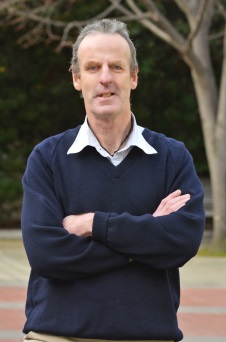
Being an adult student can be enough of a challenge but for Martin he has the added challenge of a mental health disability which brings with it periods of extreme anxiety and depression.
In practical terms this means there are times when it affects his ability to interact, his ability to concentrate, his ability to focus and his ability to write.
"I think my disability is one of those unseen disabilities. Like any disability there are parts that can be seen and identified and then there are parts that are almost anonymous. More often than not it's the anonymous parts that give you the trouble because you tend to behave or act in a way that people can't rationalise."
Martin took up his tertiary studies in his 40s after having worked in the demolition industry and even having a stint working in the North Sea.
He began with a degree in sport coaching, then a postgraduate diploma at the Phys Ed School completing a dissertation on exercise psychology.
During that time he became increasingly interested in public health and completed a Diploma in Public Health and is now working towards his Masters, looking at the use of exercise as a therapeutic treatment within forensic mental health.
As an older person he found it difficult initially to make use of or even find out about some of the support that's available - but that has all changed now.
"Disability Support Services allow me to negotiate the nature of the support they give me and they make it very clear about whether they can or they can't. If they can't help they tend to put me in contact with someone who can," he says.
"They are very skilled and they treat people with dignity."